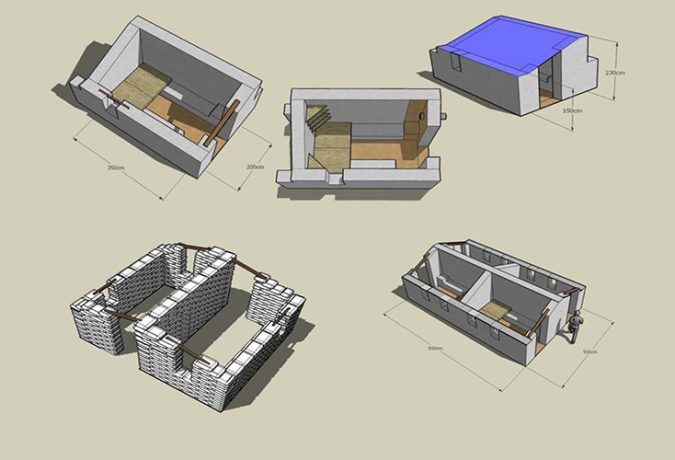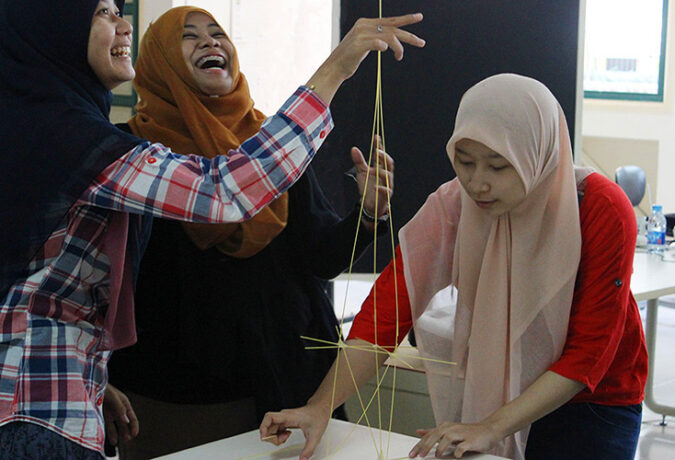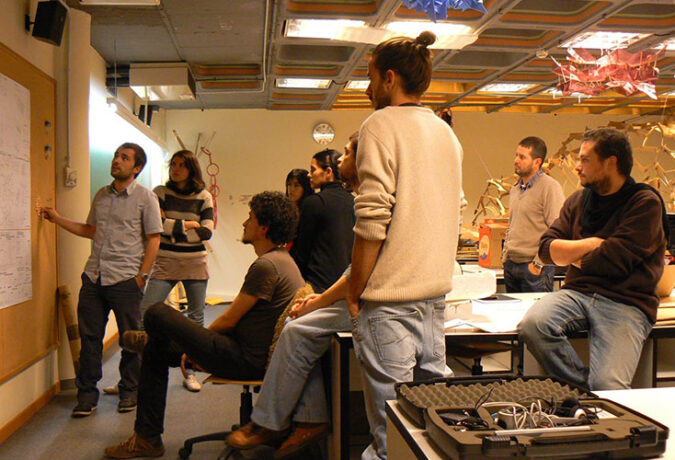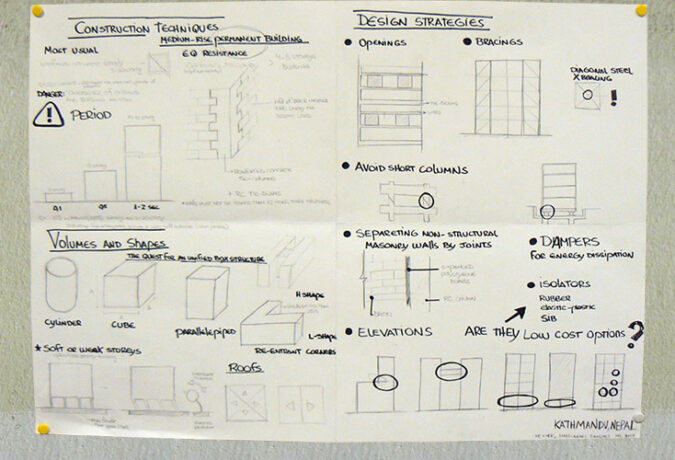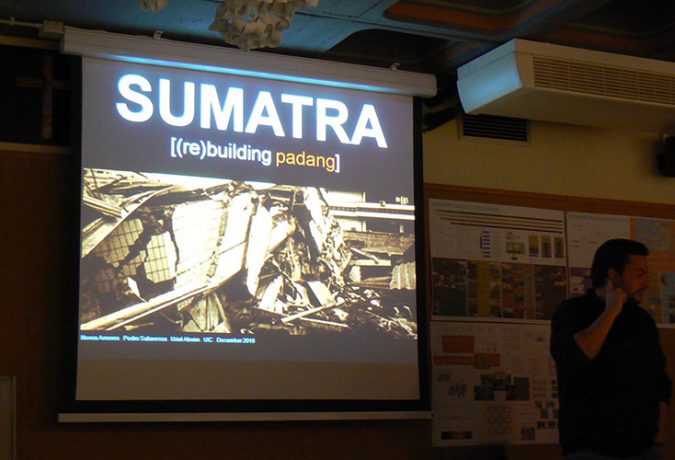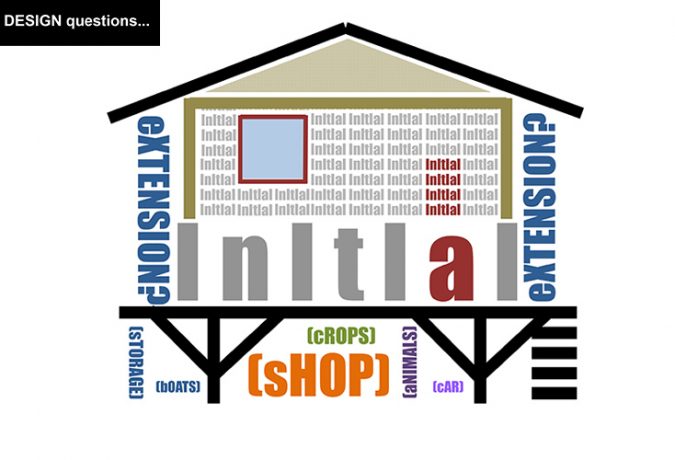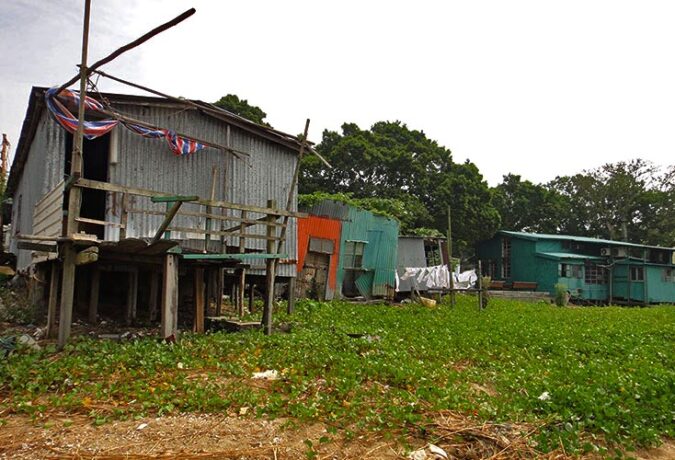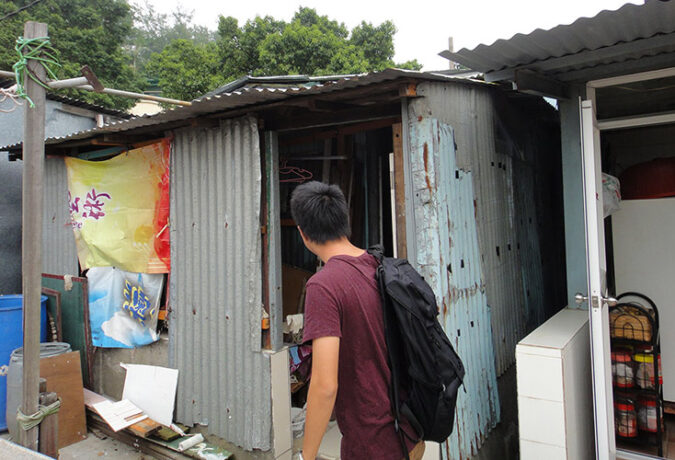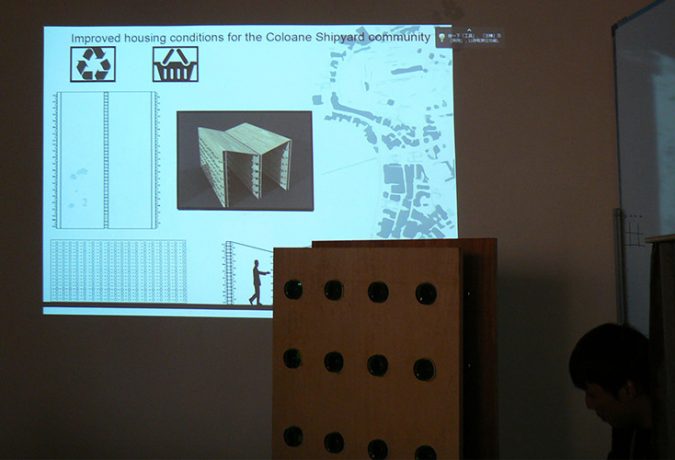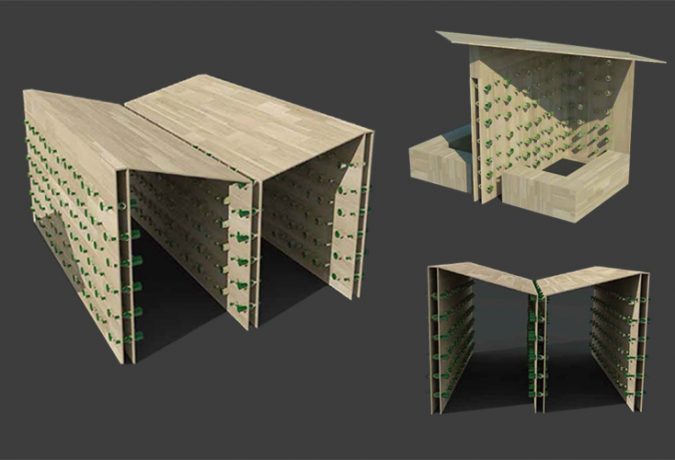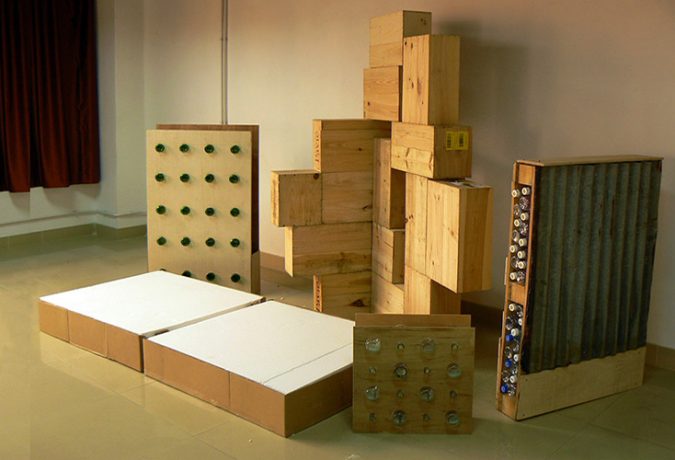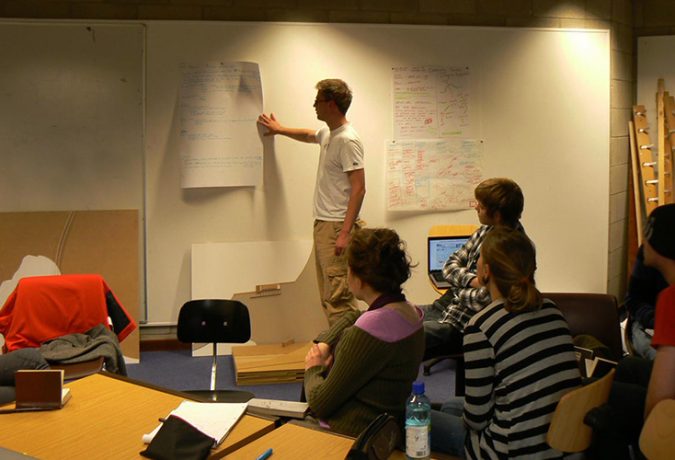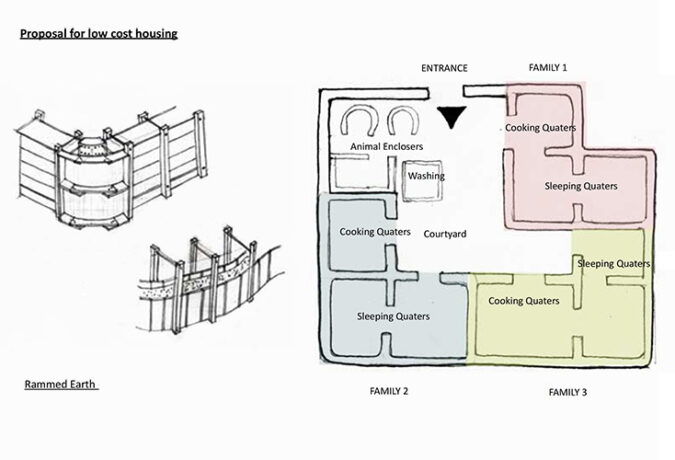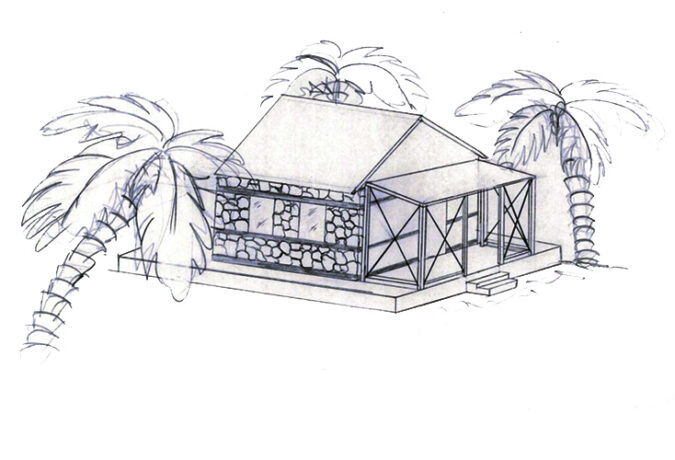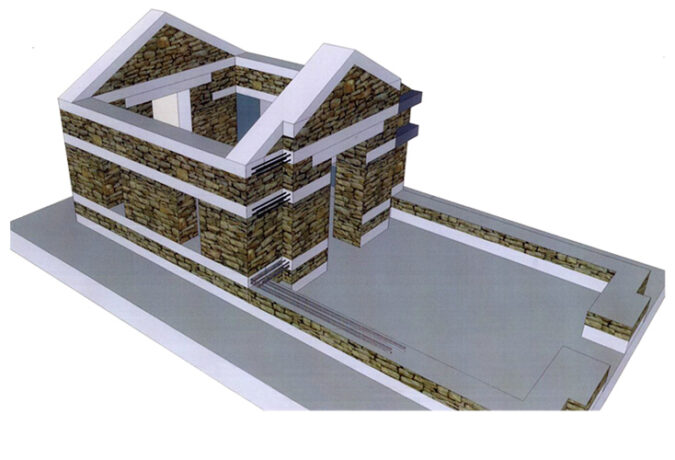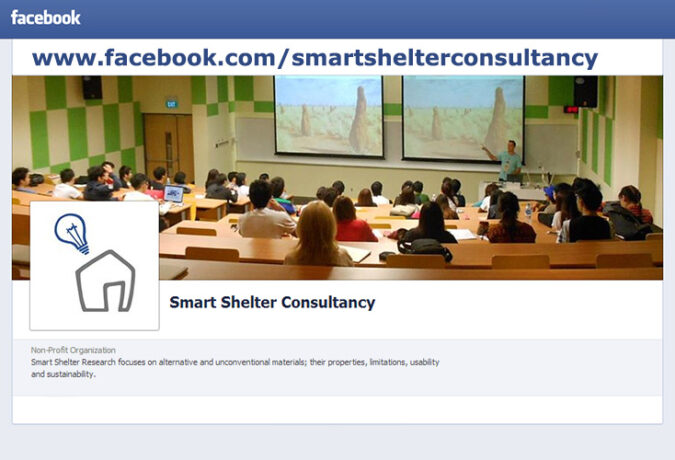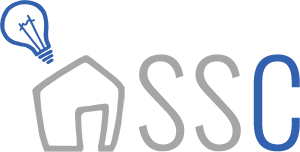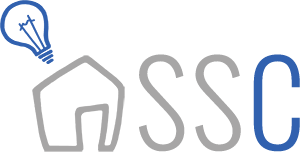Design Workshop: Social Design
Description of Workshop
| Topics: | working in developing countries, ‘lessons not learned’ social housing, reconstruction after disaster |
| Disciplines: | architecture, civil engineering |
| Type: | design assignment with lectures |
| Hands-on: | making a solar cooker from campus waste |
| Field Trip: | recommended |
| Duration: | 1 week excluding field trip, easy to extend |
| Combinations: | emergency architecture, alternative construction, the art of upcycling |
Social Design – Improving the living conditions in general.
Social design is very popular among students and young professionals these days. In this workshop format, we can focus on 2 different audiences.
The first option is about how to improve the general living conditions in developing countries. This can include disaster-prone areas and can be combined with the use of
alternative techniques and experiments. We critically analyze the role of organizations and aid workers in developing projects and reconstruction efforts.
The second focus is on improving housing for people in marginalized situations.
For example, for migrant workers who come from developing countries to work in the developed world. We need to find reasonable, affordable and creative solutions to improve this current and fast growing problem.
Participants are asked to create a design brief for a housing project, a school or community building, a rural hospital, or an orphanage. These may be located in a developing country or in a disaster-prone area. In small groups, students make an assessment of the area in question and define all the different design parameters, such as topographical, climatic, political and socio-cultural influences.
Overall we take a close look at the different processes and influences that designers and aid workers are exposed to and need to deal with. Other topics include non-engineered earthquake design, building with natural and waste materials, and improvement of the living conditions in general.
Field trips make things more clear; to talk to the people and see things for themselves gives the participants a better understanding of the actual situation.
Aims and Outcomes
This program is quite intense, but offers a balanced variety of sensitive topics, strong messages, and surprising results.
The design assignments for this workshop involve many complicated socio-cultural issues, in difficult and sometimes extreme environments, often with enormous financial constraints. It is very important that students understand the complexity of the context and learn to focus on the real needs of the recipients.
We will stimulate creative and realistic thinking and help students to look for the right solutions that will lead to a sensible concept.
Upon completion of the module, the student will have a better understanding of the processes, influences, and impacts that can occur when living in a developing country or post-disaster area.
As for the second focus, the student will have gained a better insight into the growing problem of social housing worldwide.
Proposed Lectures and Timetable (example, field trip excluded)
#1. Introduction about the work of Smart Shelter Foundation and explanation of the design assignments to the participants. (30 minutes)
#2. Case Study; Rebuilding after the Tsunami in Sri Lanka; Full description of the design and rebuilding of 170 houses on the east coast, in a post-disaster and conflicted area. (1 hour 15 minutes)
#3. Case Study; Building a school in India with Earth Blocks; Complete story from design phase, to making blocks and masonry in a small village. (1 hour 15 minutes)
#4. Non-Engineered Earthquake Design Principles; The basics of earthquake resistant construction, historic research and testing, design limitations and proper material handling. (2 x 45 minutes)
#5. Case Study; Building Earthquake Resistant Mountain Schools in Nepal; Construction overview for building safe schools in remote mountain areas. (1 hour)
#6. Engineering for the Bottom of the Pyramid; improving the lives of people by designing simple devices for lighting, energy, cooking (product design), tools and machinery (mechanical engineering). Includes making a solar cooker from campus waste. (1 full day)
#7. Movie ‘Taste the Waste’ (1 hour 15 minutes)
#8. Lessons Not Learned; Relief Work and Developing Aid; A Critical View. Why is it difficult to work in developing countries or disaster struck areas, how can we deal with these situations? (1 hour)
| Morning Program | Afternoon Program | |
|---|---|---|
| Day 1 | #1 Opening + explain assignment #2 Case study Sri Lanka |
#3 Case study India Start design brief |
| Day 2 | #4 Earthquake resistant design Work on design brief |
#5 Case study Nepal Work on design brief |
| Day 3 | #6 Engineering for the BoP + Solar cooker assignment |
Solar cooker assignment |
| Day 4 | Work on design brief and sketches #7 Movie + test cookers |
Work on design brief and sketches |
| Day 5 | Finalize design work | Final presentations of all work #8 Lessons not learned |
Possible Extensions and Combinations
Since this workshop format is quite intensive, we recommend that you consider extending the program for an additional week. This is easily done by adding elements of the
following formats:
- Design workshop; Alternative Construction (click here)
- Design workshop; Emergency Architecture (click here)
- Hands-on experience; The Art of Upcycling (click here)
If you would like us to make a custom-made proposal, please send us a request by filling in the contact form.
